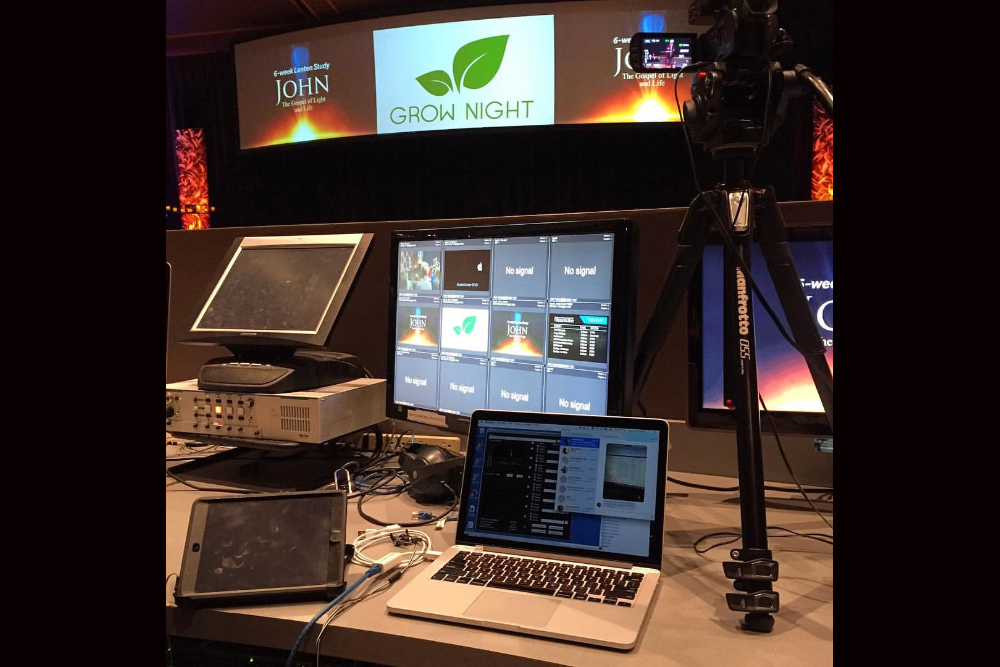Community, Leadership, Experimentation, Diversity, & Education
Pittsburgh Arts, Regional Theatre, New Work, Producing, Copyright, Labor Unions,
New Products, Coping Skills, J-O-Bs...
Theatre industry news, University & School of Drama Announcements, plus occasional course support for
Carnegie Mellon School of Drama Faculty, Staff, Students, and Alumni.
CMU School of Drama
Tuesday, January 17, 2023
The All-In-One-Tech: Taking On More Production Roles For Fun & Profit
ProSoundWeb: I meet a lot of sound engineers and techs around my age (mid-20s) that strictly stick to audio and don’t dare to touch anything else, whether it be to stay focused on audio or to not get roped into something they don’t particularly want to do.
Subscribe to:
Post Comments (Atom)

4 comments:
I definitely agree that it can only be helpful to know as much about as many different areas, especially subcategories of your own specialization, as possible. If something goes wrong, troubleshooting is most feasible when you know a lot of information about what could have been the problem. Therefore, specializing in multiple areas outside of your own can only help you. However, I also know that sometimes technicians with a wide breadth of knowledge can be taken advantage of, especially on lower-budget shows, having to do a lot of work across multiple disciplines while still only really being paid for one job. This is an industry problem though, and if the pay reflects the increase in work, then taking on more responsibilities will obviously actually help technicians. The more skills you have, the more valuable you are to a potential employer. I know I definitely want to know as much as possible about the other areas of theatre, even if I end up only working in one or two. That also helps you get along with and communicate with the rest of the team.
The fact that undercutting and jobs constantly being combined is upsetting to me because as an industry technicians deserve to be paid more for just the job they were hired to do. That being said, the unfortunate truth of the entertainment world is that budgets don't allow many technicians to succeed in their career if they are only doing one thing even if that thing is done well. As someone who would genuinely declare every option in the school of drama and personally both strives for and has built a reputation of always helping and growing as both an artist and a manager I see the advantages of knowing how to dabble in every element of theater. Something the article touched on and that I find personally upsetting is how frequently sound and lights are bundled together as they are two distinct and in a way opposite areas of design.
Theo
I see this as something that can be enjoyable if someone genuinely enjoys each of the areas they are working in, but more often I see individuals doing this as a means for getting enough income. When it is the case of income, I wish this was not as common. I believe that people should be able to specialize in just one area and have that be enough in all realms. Again, if someone enjoys working within multiple eras and they are doing it out of desire, I think it is phenomenal. Being an asset to multiple areas and groups of people makes one a valuable member of a production team as they can serve several purposes and would possess a wider range of skills than others. I also feel like in this industry, specializing in more than one thing could help prevent burnout as we know it is common…
This is a discussion I often have with other Design & Production majors here at Carnegie Mellon University specifically because of the way our program is built to make you define a specific path as your artistic choice, without allowing for the option to pursue multiple areas of interest. In the first 3 semesters, you are able to learn and work under multiple different mediums, and by the end of the 3rd semester you must decide which area you want to pursue for the rest of your career; which is especially limiting and unrealistic when it comes to a majority of theatrical institutions of our time. Especially when it comes to technical theatre, a lot of tech people are hired/educated within a multitude of technical areas, and I personally think that we as artists should not be limiting ourselves to one area, especially if we have interests in multiple. Technical theatre has a lot of cross-over between each other, whether it be how it is developed, how it is set up, how it is presented, etc.; and to limit artists to one specific medium not only limits their creativity, but also limits their ability to grow and change as an artist.
Post a Comment